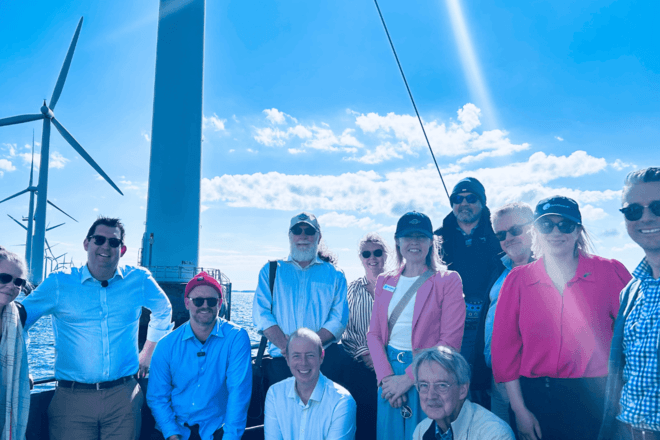
Last week, energy prices again received a lot of attention in the media when the price reached close to DKK 7 per kWh before tariffs, electricity tax and VAT (approximately DKK 11 including these, ed.). These were prices on par with the most expensive periods during the energy crisis.
- There were a few hours when consumption and production had difficulty meeting. The electricity companies had to turn on the power plants and draw on all the resources they had available to supply enough electricity to consumers. This led to extremely high prices for a short time, says Kristian Rune Poulsen, energy analyst at Green Power Denmark, in a press release.
In general, however, the Danes have achieved the lowest average electricity price in four years. Thus, the electricity price has averaged 53 øre per kWh before taxes in 2024. This is shown by a statement from Green Power Denmark.
However, the statement also indicates that 2024 has been characterized by large fluctuations in the electricity price. There have been a total of 14.5 days in Western Denmark and 11.5 days in Eastern Denmark with negative prices - which is a record. And there have been less than three days where the price has been above two kr. per kWh. According to Green Power Denmark, the low electricity prices are due to the fact that 60 percent of Danish electricity is produced by solar and wind energy, which is cheaper than fossil fuels.
- The pure electricity price including transport and trading costs is far below the European average. It is only in the rest of Scandinavia and a few other countries that citizens and companies pay a lower price for electricity than we do in Denmark, says Kristian Rune Poulsen.
Green Power Denmark points out that the prices experienced by Danish consumers are significantly higher, as one of Europe's highest electricity taxes is added to what is otherwise one of Europe's lowest electricity prices.
- If politicians want to help consumers with lower electricity prices, the most obvious thing to do is to lower the electricity tax. It is a tax that is counterproductive and makes it more expensive to use green electricity. And if politicians also ensure that more solar cells and wind turbines are installed, there will be less need for expensive fossil fuels, says Kristian Rune Poulsen.
amp
Text, graphics, images, sound, and other content on this website are protected under copyright law. DK Medier reserves all rights to the content, including the right to exploit the content for the purpose of text and data mining, cf. Section 11b of the Copyright Act and Article 4 of the DSM Directive.
Customers with IP agreements/major customer agreements may only share Danish Offshore Industry articles internally for the purpose of handling specific cases. Sharing in connection with specific cases refers to journaling, archiving, or similar uses.
Customers with a personal subscription/login may not share Danish Offshore Industry articles with individuals who do not themselves have a personal subscription to Danish Offshore Industry.
Any deviation from the above requires written consent from DK Medier.




















